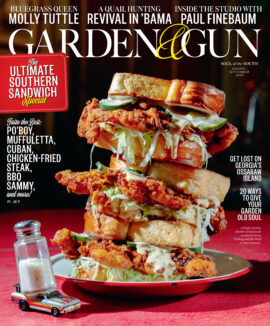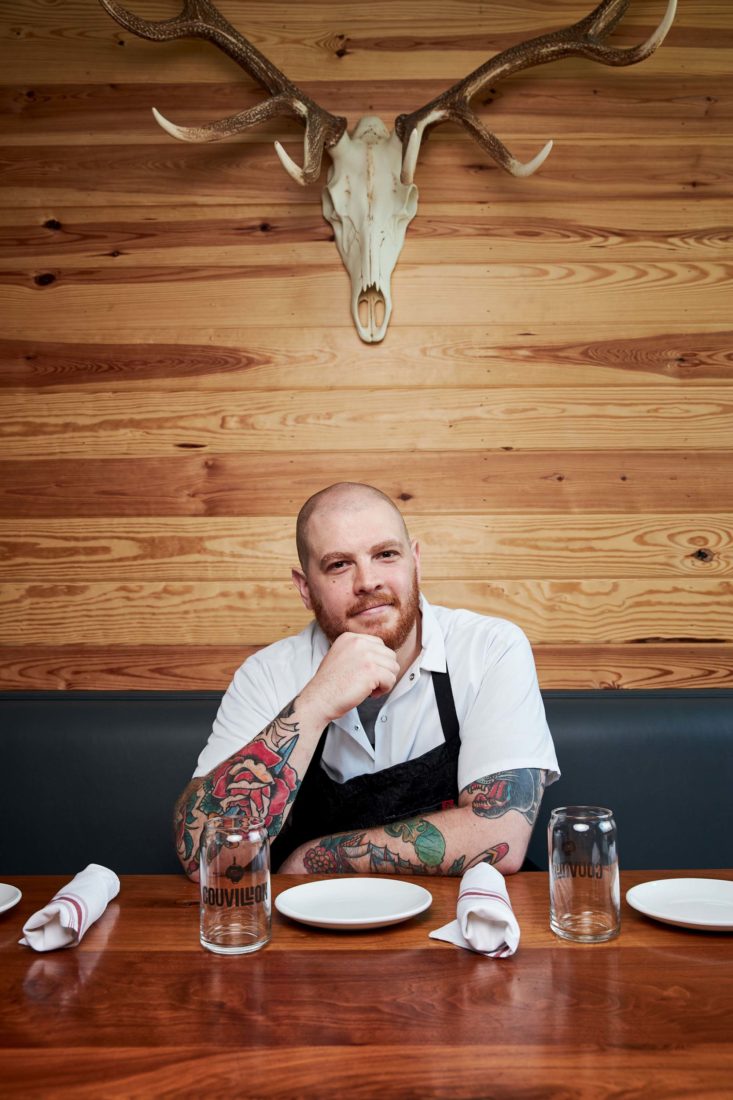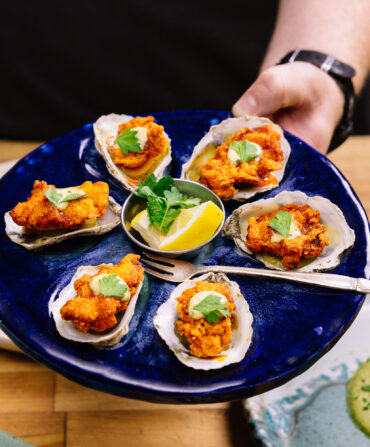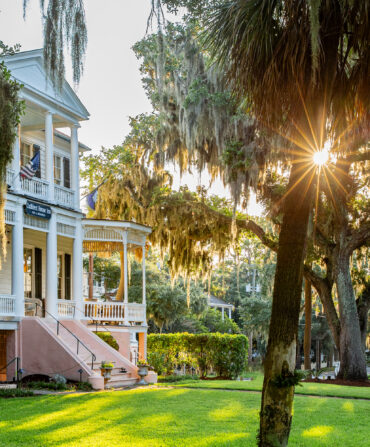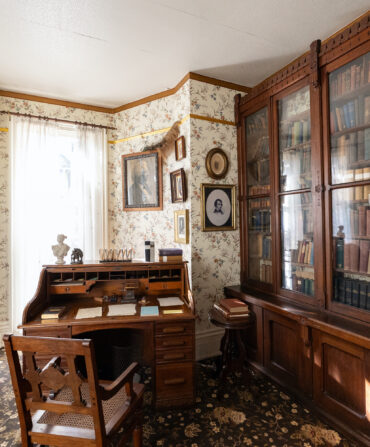My father and I worried over the cast-iron skillet, turning ash white on a gas grill licked by a blue flame. Was the skillet really hot enough? Had we coated the fish with enough melted butter? Did it matter that we had mixed our own spice blend instead of using the chef’s brand? I was home from college. My father had recently remarried. Gathered in the backyard of his new wife’s brick ranch in suburban Macon, Georgia, we were trying to reconnect.
Together, we had watched the chef on a morning television show, wearing whites and a pin that read TOTALLY HOT, talking about his Louisiana roots. We had bought his 1984 book, Chef Paul Prudhomme’s Louisiana Kitchen. Like seemingly half the home cooks and three-quarters of the restaurant cooks in 1980s America, we were trying to figure out whether our redfish had turned black as in blackened or black as in burned.
Over dinner at Couvillion, which opened last year in the Germantown neighborhood of Louisville, I thought of my father. And of Prudhomme, the Opelousas-born champion of Louisiana cooking who rose to become one of America’s first celebrity chefs. Spooning into chef Paul Skulas’s chicken and andouille gumbo, flavored with country ham scraps, the tar-black roux broth bobbing with collapsed okra spears, I recognized that Prudhomme’s fame continues to pay dividends. Smearing cane syrup butter on a skillet-shaped hoecake made with cold-smoked Kentucky cornmeal, I saw how a new generation of chefs uphold and reinvent his legacy.
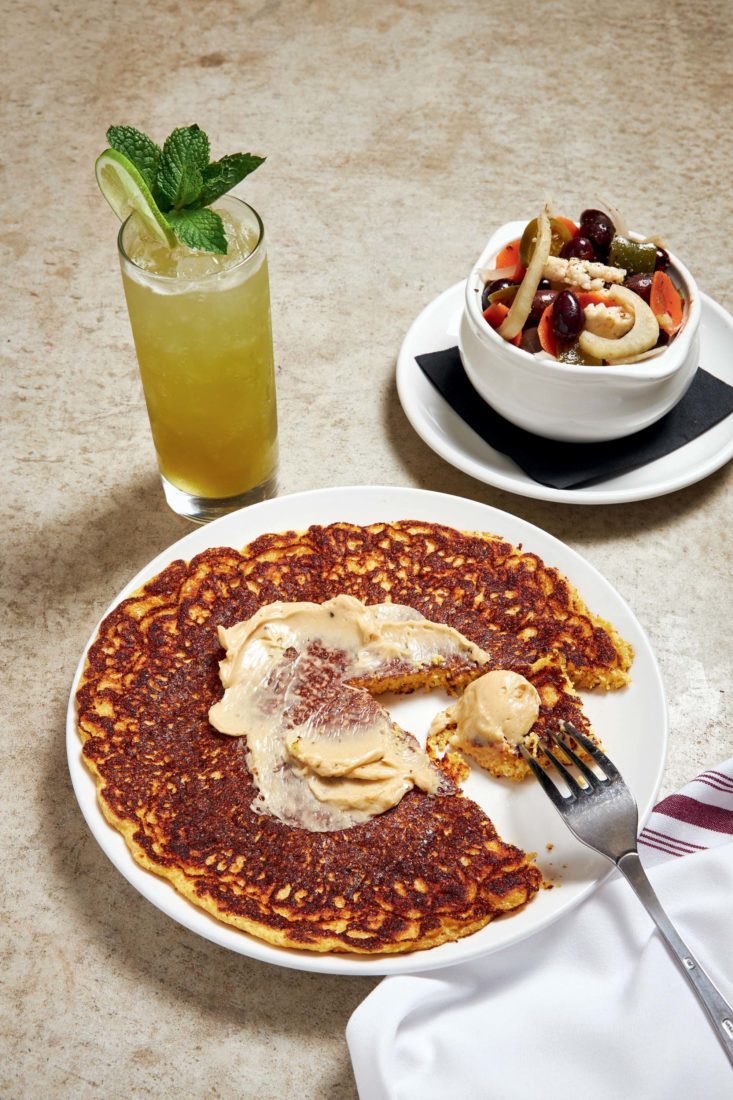
Photo: Jeremy Kramer
The smoked hoecake.
Couvillion aims to be a modern roadhouse, with a big bar up front, hardwood floors, a gravel patio, and a frozen rosé machine behind the counter. (I did say modern.) Folk art portraits blanket the walls: Mississippi bluesman Muddy Waters here, Louisville native son Muhammad Ali there. The music spans geographies and genres, from Delta blues to New Orleans boogie-woogie. All telegraph that this place values the unvarnished, the homemade, and that, while this restaurant draws inspiration from Cajun Country, this chef does not stay in his lane.
In the decade after Prudhomme opened K-Paul’s in 1979 in New Orleans, Cajun cooking became the first subregional cuisine to break out of the South. Before much of America knew the Lowcountry, before Appalachia stepped forward, Cajun was the place-specific gateway culture for a nation bent on rediscovering the country cooking it left behind in the rush toward the suburbs.
Cajun dishes required a new larder, stocked with mirlitons, tasso, and andouille, and a new lexicon. But as with blackened redfish, which he conceived working in the kitchen at Commander’s Palace in New Orleans, what Prudhomme cooked wasn’t strictly traditional. Instead, he cooked dishes that were rough-hewn and peculiar and irresistible.
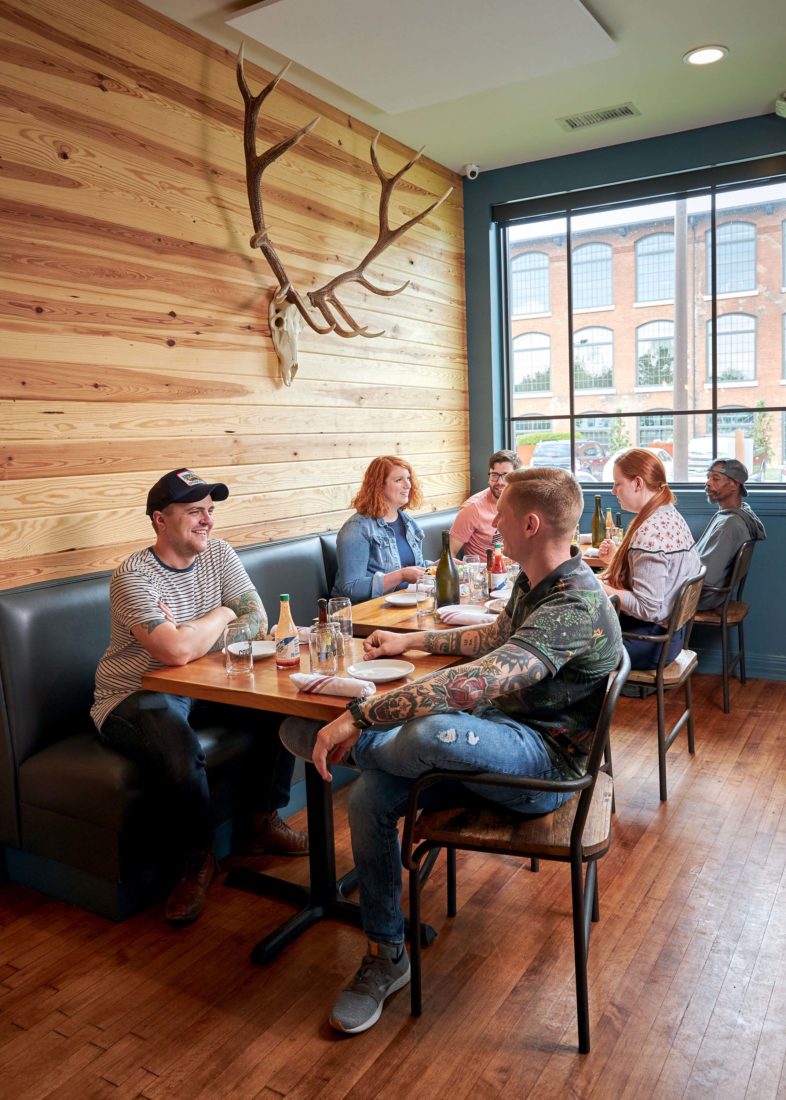
Photo: Jeremy Kramer
Inside the modern roadhouse
Born in California, Paul Skulas landed in the South after serving in the Marine Corps in North Carolina. What Skulas knows of Louisiana food, he learned reading cookbooks and eating in the restaurants of chefs he admires. He once lived in Oxford, Mississippi, where he cooked with the Louisiana-born John Currence at City Grocery. He frequently travels to New Orleans to eat roast beef po’boys at R&O’s. (Smart man.)
Skulas cooks what he calls Kentucky-Cajun. That gives him license to sub country ham for tasso. That’s why his menu features soup beans, the workingman’s and workingwoman’s food of Kentucky, alongside shrimp remoulade, the haute Creole dish of New Orleans. And that’s why his burgers, flattened and served on a mound of chopped and griddled onions, pay homage to Laha’s Red Castle, the vintage burger acropolis in Hodgenville, Kentucky.
He takes liberties with classics, dressing catfish po’boys with pepper jelly slaw. Dirty rice, usually served as a side with fried chicken or roast pork, gets recast as a brunch entree, capped with sunny-side-up eggs. It’s a brilliant dish. At eight dollars, it’s also very reasonable. Some frugal dishes miss the landing. On the night I ate a six-buck slice of lemon pie, tucked in a crushed saltine crust, it tasted like the inside of a stale fridge. But Skulas’s work with classics redeems such stumbles. An inspired seventeen-dollar entree of delicate, cornmeal-battered shrimp, served atop a brawny and brothy jambalaya, tasted like it had been teleported from an Atchafalaya Basin houseboat party.
Thirty-five years have now passed since my father brought home Chef Paul Prudhomme’s Louisiana Kitchen. Much has changed. Prudhomme died in 2015, and a new generation of chefs has stepped into the spotlight, including Donald Link of Cochon in New Orleans. Prudhomme’s ideas still reverberate, but like the ringing in my ears two days after a loud rock-and-roll show, that reverb is now a murmur.
After dining at Couvillion, I asked Skulas what inspires him. He spoke of Link and his book Real Cajun, on display in the dining room alongside two histories of the Marine Corps and Chasing the Gator by Isaac Toups, who opened his first New Orleans restaurant in 2012. Prudhomme is like the bacon drippings that grease a well-seasoned skillet—elemental and unseen. At Couvillion, Skulas proves a worthy interpreter of that legacy, inspired by the cuisine Prudhomme made famous, but unbowed by its rites and conventions.

